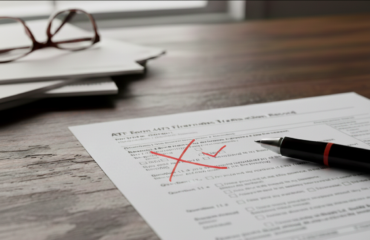
As an FFL dealer, the ATF Form 4473 plays a crucial role in your firearms business operations. However, there may be instances when a potential customer’s application is denied. In such cases, understanding the denial appeal process is essential to ensure fairness and accuracy. Let’s delve into the details of the 4473 denial appeal process and explore how it works.
The Basics of ATF Form 4473
Before we discuss the appeal process, let’s recap what the ATF Form 4473 entails:
Purpose: The ATF Form 4473 serves as a record of the sale or transfer of a firearm. It collects essential information about the buyer, the firearm, and the transaction.
Denial Situations: Sometimes, a potential customer may receive a denial due to various reasons, such as criminal history, mental health issues, or other disqualifying factors.
The Appeal Process for FFL Dealers
- Erroneous Denial or Extended Delay
If you believe a potential customer has been wrongly denied or has experienced an extended delay during a firearms transfer, they have the right to appeal. Here’s how:
First Step: The customer should submit their appeal request to the agency that conducted the background check. This could be either the state point of contact or the FBI through the National Instant Criminal Background Check System (NICS).
Alternative Route: Instead of appealing directly through the processing agency, the customer can choose to submit their appeal request to the FBI’s Criminal Justice Information Services (CJIS) Division’s NICS Section.
- Challenging the Record Accuracy
The customer can challenge the accuracy of the record used as the basis for their denial or delay. Here are some options:
Record Challenges: If the customer has additional information (such as court documentation), they should include it with their written correspondence to assist the NICS Section’s Appeal Services Team (AST) in correcting or updating the record.
Questions of Identity: If the customer questions the identity of the criminal history record used for their denial or delay, they can have their fingerprints rolled or electronically scanned by law enforcement. Ensure that the fingerprint card is marked “For NICS Purposes.”
- Requesting an Appeal
The customer should request the reason for their denial or delay from the FBI in writing via mail, facsimile, or online. Due to privacy regulations, the reason cannot be provided over the phone.
The customer should include the following information with their appeal request:
Complete Name Complete Mailing Address NICS Transaction Number (NTN) or State Transaction Number (STN) Optionally, include a set of their rolled fingerprints.
- Appealing a Delay
If the customer experienced a delay, they must wait 30 days from the date of initiating the check before filing an appeal. The NICS Section’s staff needs time to complete the initial transaction.
The customer should include the same required information as for denials, along with a set of their rolled fingerprints.
- Timelines
A delayed transaction will be purged from the NICS within 88 days from creation.
Understanding the 4473 denial appeal process is crucial for FFL dealers to ensure a smooth and compliant firearms business operation. By guiding potential customers through the appeal process, you can help resolve erroneous denials or delays, maintain transparency, and uphold accountability.
Remember, responsible firearm sales involve understanding the legal framework and advocating for your customers’ rights within the established procedures. For more information, visit the FBI NICS Appeals website.



